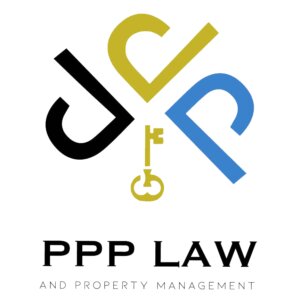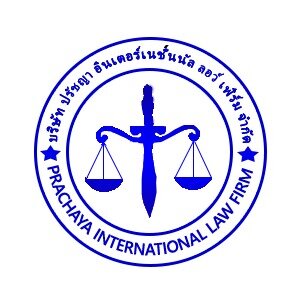Best Conveyancing Lawyers in Huai Khwang
Share your needs with us, get contacted by law firms.
Free. Takes 2 min.
Free Guide to Hiring a Real Estate Lawyer
List of the best lawyers in Huai Khwang, Thailand
About Conveyancing Law in Huai Khwang, Thailand
Conveyancing refers to the legal process of transferring property ownership from one party to another. In Huai Khwang, a highly urbanized district within Bangkok, property transactions are governed by Thai real estate and land laws. This process involves preparing and reviewing contracts, conducting due diligence, submitting documents to the Land Office, and ensuring that the buyer receives a clear legal title. Both local Thai citizens and foreigners engage in property transactions in Huai Khwang, which may include residential condominiums, commercial buildings, or land plots. Because property laws are complex and strictly regulated in Thailand, it is vital to understand local requirements before proceeding with any real estate transaction.
Why You May Need a Lawyer
Conveyancing can quickly become complicated in Thailand due to the intricate laws, language barriers, and cultural differences. Common situations where individuals may need legal assistance include:
- Purchasing or selling a condominium, house, or land
- Verifying the authenticity of title deeds
- Ensuring compliance with foreign ownership restrictions
- Drafting and reviewing purchase agreements and contracts
- Handling negotiations with sellers, buyers, or developers
- Resolving disputes related to property boundaries or unpaid taxes
- Transferring property due to inheritance or divorce
Lawyers can help ensure that your rights are protected, prevent future disputes, and make sure the transaction fully complies with Thai law.
Local Laws Overview
Conveyancing in Huai Khwang falls under the Thai Civil and Commercial Code, the Land Code Act, and relevant land department regulations. Some key aspects of these laws include:
- Foreign nationals generally cannot own land, but they may purchase condominium units under specific quotas
- All property transfers must be registered at the local Land Office, where official records are maintained
- Property taxes and transfer fees are applicable and calculated based on the assessed or registered value
- Title deed verification is crucial to ensure there are no encumbrances or third-party claims
- Contracts must adhere to Thai legal requirements and be executed in Thai
- Due diligence must be performed to protect against potential fraud or defects in title
Each municipality, including Huai Khwang, may have minor procedural differences or local requirements, but all must adhere to national law.
Frequently Asked Questions
What documents are required for a property transfer in Huai Khwang?
Generally, you need the original title deed, identification documents, house registration book, sale and purchase agreement, and proof of payment for taxes and fees.
Can foreigners buy property in Huai Khwang?
Foreigners can purchase condominiums, provided that foreign ownership in the building does not exceed 49 percent. Foreigners cannot directly purchase land, except under specific investment or legal structures.
What is the role of the Land Office in Huai Khwang?
The Land Office is responsible for registering property transfers, verifying title deeds, and collecting relevant taxes and fees during the conveyancing process.
How long does the conveyancing process take?
The process typically takes a few weeks to a few months, depending on the complexity of the transaction and documentation availability.
What are the common fees and taxes applicable?
Buyers and sellers must typically pay a transfer fee, specific business tax or stamp duty, withholding tax, and sometimes income tax if applicable.
Should contracts be in Thai or English?
Official documents submitted to the Land Office must be in Thai. It is advisable to have an English translation for reference, especially for foreigners.
How is due diligence conducted?
Due diligence includes verifying the title deed, checking for encumbrances, confirming the property’s legal status, and ensuring no outstanding debts or legal disputes.
Can properties be purchased off-plan in Huai Khwang?
Yes, but it is crucial to review the developer’s credentials and the contract terms. Legal advice is highly recommended for off-plan purchases.
What happens if there are title disputes?
Title disputes should be resolved through negotiation or legal proceedings. A lawyer can provide guidance and representation in court if necessary.
Do both parties need to be present during the transfer?
Ideally, both buyer and seller should be present at the Land Office. However, either party may appoint a legal representative via a Power of Attorney.
Additional Resources
The following resources can offer further assistance or information regarding conveyancing in Huai Khwang, Thailand:
- Huai Khwang District Office - for local property records and documentation inquiries
- Bangkok Metropolitan Land Office - handles property registrations and disputes
- Department of Lands (Thailand) - national regulatory authority for land and property
- Law Society of Thailand - directory of licensed conveyancing lawyers
- Thai Real Estate Association - useful for connecting with reputable agents and professionals
Next Steps
If you are considering buying or selling property in Huai Khwang, start by gathering all relevant property and identification documents. Research the property’s legal status and consider arranging a meeting with a qualified Thai property lawyer. Consult with the Huai Khwang Land Office or a reputable real estate agency for procedural information. Always have contracts and major documents reviewed by legal counsel before signing or transferring funds. Taking these preliminary steps will help you navigate the conveyancing process smoothly and ensure your rights and interests are fully protected under Thai law.
Lawzana helps you find the best lawyers and law firms in Huai Khwang through a curated and pre-screened list of qualified legal professionals. Our platform offers rankings and detailed profiles of attorneys and law firms, allowing you to compare based on practice areas, including Conveyancing, experience, and client feedback.
Each profile includes a description of the firm's areas of practice, client reviews, team members and partners, year of establishment, spoken languages, office locations, contact information, social media presence, and any published articles or resources. Most firms on our platform speak English and are experienced in both local and international legal matters.
Get a quote from top-rated law firms in Huai Khwang, Thailand — quickly, securely, and without unnecessary hassle.
Disclaimer:
The information provided on this page is for general informational purposes only and does not constitute legal advice. While we strive to ensure the accuracy and relevance of the content, legal information may change over time, and interpretations of the law can vary. You should always consult with a qualified legal professional for advice specific to your situation.
We disclaim all liability for actions taken or not taken based on the content of this page. If you believe any information is incorrect or outdated, please contact us, and we will review and update it where appropriate.










